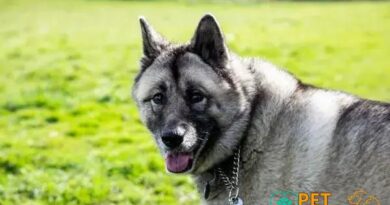What is dog hygiene
What is Dog Hygiene?
Dog hygiene refers to the practices and routines that ensure the cleanliness and overall health of your canine companion. It encompasses various aspects, including grooming, dental care, and maintaining a clean living environment. Understanding the importance of dog hygiene is crucial for pet owners who want to promote the well-being of their furry friends.
The Importance of Regular Grooming
Regular grooming is a fundamental component of dog hygiene. This practice not only keeps your dog’s coat clean and free of tangles but also helps to prevent skin infections and parasites. Depending on the breed, grooming may involve brushing, bathing, and trimming nails. Establishing a grooming routine can significantly enhance your dog’s comfort and health.
Bathing Your Dog
Bathing is an essential part of maintaining dog hygiene. It is recommended to bathe your dog every few weeks, or as needed, depending on their activity level and coat type. Using a dog-specific shampoo helps to avoid skin irritation. Proper bathing techniques, including rinsing thoroughly, are vital to ensure that no soap residue remains, which can lead to skin issues.
Dental Care for Dogs
Dental hygiene is often overlooked but is a critical aspect of dog hygiene. Regular brushing of your dog’s teeth can prevent plaque buildup, gum disease, and bad breath. Additionally, providing dental chews and toys can help maintain oral health. Regular veterinary check-ups should also include dental assessments to ensure your dog’s mouth remains healthy.
Ear Cleaning and Care
Ear hygiene is another important factor in your dog’s overall health. Regularly checking and cleaning your dog’s ears can prevent infections and discomfort. Use a vet-recommended ear cleaner and cotton balls to gently clean the outer ear. Be cautious not to insert anything deep into the ear canal, as this can cause injury.
Nail Trimming and Paw Care
Nail trimming is a vital part of dog hygiene that often gets neglected. Overgrown nails can cause pain and lead to mobility issues. Regularly trimming your dog’s nails, ideally every few weeks, helps to keep their paws healthy. Additionally, checking for any debris or injuries between the toes is essential for maintaining paw hygiene.
Maintaining a Clean Living Environment
A clean living environment is crucial for your dog’s hygiene. Regularly cleaning your dog’s bedding, toys, and living areas helps to reduce the risk of infections and parasites. Vacuuming and washing these items can eliminate dirt, allergens, and odors, creating a healthier space for your pet.
Feeding and Nutrition
Proper nutrition plays a significant role in your dog’s overall hygiene and health. Feeding your dog a balanced diet rich in essential nutrients supports their immune system and promotes healthy skin and coat. Always consult with your veterinarian to determine the best diet for your dog’s specific needs and lifestyle.
Regular Veterinary Check-ups
Routine veterinary visits are essential for maintaining your dog’s hygiene and health. Regular check-ups allow for early detection of potential health issues and ensure that vaccinations and preventive care are up to date. Your veterinarian can provide tailored advice on hygiene practices specific to your dog’s breed and lifestyle.



